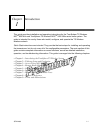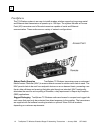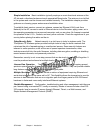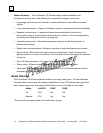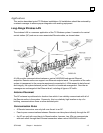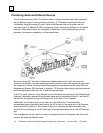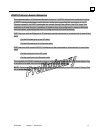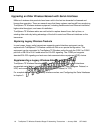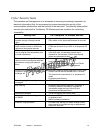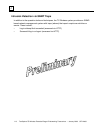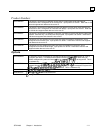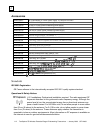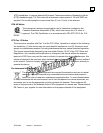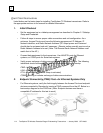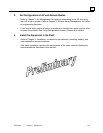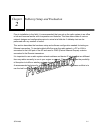
GFK-2489 Chapter 1 Introduction 1-9
1
Cyber Security Suite
The operation and management of an enterprise is becoming increasingly dependent on
electronic information flow. An accompanying concern becomes the security of the
communication infrastructure and the security of the data itself. The following table profiles
security risks and how the TranSphere TS Wireless provides a solution for minimizing
vulnerability.
Security Risk The TranSphere TS Wireless Solution
Unauthorized access to the backbone
network through a foreign remote
radio
▪ Approved Remotes List
Only radios on the Approved Remotes list connect
“Rogue” AP, where a foreign AP
takes control of some or all Remote
radios and thus remote devices
▪ Approved AP List
A Remote connects only to APs on its Approved AP
List
“Dictionary attacks”, where an intruder
runs a program that sequentially tries
to break a password
▪ Failed log-in lockdown
After three tries, a transceiver ignores log-in
requests for five minutes. Critical event reports
(traps) are generated as well.
Denial of service, where Remote
radios could be reconfigured with bad
parameters, bringing the network
down
▪ Remote log-in
▪ Local console log-in
▪ HTTP (Hypertext Transfer Protocol) and Telnet
disabled, enabling only local management
▪ services
Airsnort and other war-driving
intruders in parking lots, near
buildings, etc.
▪ Frequency-hopping spread spectrum (FHSS) does
not talk over the air with standard 802.11b cards
▪ The transceiver cannot be put in a “promiscuous”
mode
▪ Proprietary data framing
Eavesdropping, intercepting
messages
▪ 128-bit encryption
Key cracking ▪ Automatic Key Rotation algorithm. In addition, a
Force Key Rotation command is available to
immediately rotate the keys of the AP and
synchronize all Remotes with it.
Replaying messages ▪ 128-bit encryption with rotating keys
Unprotected access to configuration
via SNMP
▪ Non-secure SNMP versions can be SNMP enabled
or disabled at will.
▪ NMPv3 password protection
Potential, ongoing attacks ▪ Provides early warning via SNMP through critical
event reports of unauthorized log-in attempts and
suspicious activities



